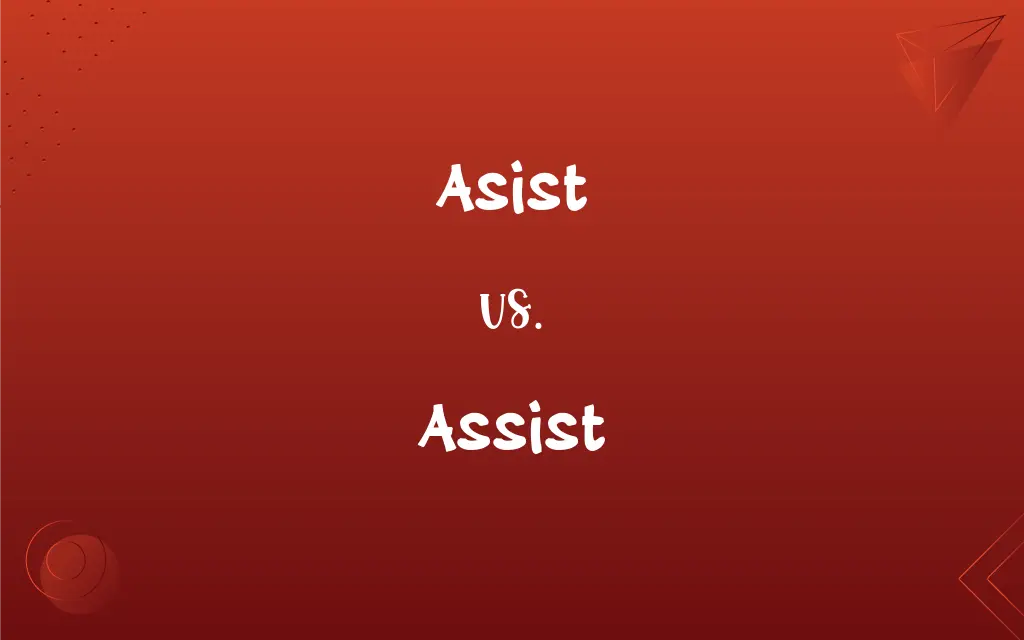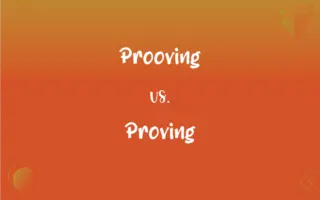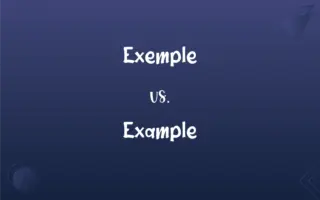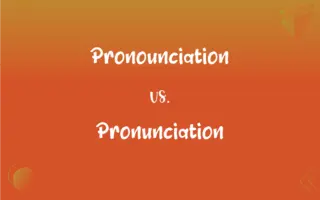Asist vs. Assist: Mastering the Correct Spelling
Edited by Harlon Moss || By Janet White || Published on March 8, 2024
"Asist" is incorrect; "assist" is the correct spelling, meaning to help or support someone or something.

Which is correct: Asist or Assist
How to spell Assist?

Asist is Incorrect

Assist is Correct
ADVERTISEMENT
Key Differences
"Assist" contains double 's', think of "assisting" as helping someone twice as much.
Break down the sounds: /ə-'sɪst/, emphasizing the presence of two 's' sounds.
Associate "assist" with "assistant" – both start with "assist" and mean providing help.
Use mnemonic: "Always Seek to Support In Stressful Times" to recall the double 's'.
Remember, "assist" has the same number of 's' as in "assistants" – two.
ADVERTISEMENT
Correct usage of Assist
The program aims to asist students with their homework.
The program aims to assist students with their homework.
The tool is designed to asist in the diagnosis of diseases.
The tool is designed to assist in the diagnosis of diseases.
Can you asist me with moving this table?
Can you assist me with moving this table?
She offered to asist with the event planning.
She offered to assist with the event planning.
He tried to asist in the kitchen but ended up making a mess.
He tried to assist in the kitchen but ended up making a mess.
Assist Definitions
To give support or aid to; help.
He assisted her with the heavy boxes.
In sports, to help a player score a goal or point.
She recorded her hundredth assist in the game.
To provide help in a professional context.
The software assists users in data analysis.
To contribute effort to complete a task or achieve a goal.
Volunteers assist in the community garden.
To act as an aid or support mechanism.
Emergency services assist during disasters.
To give help or support to, especially as a subordinate or supplement; aid
The clerk assisted the judge by looking up related precedents. Her breathing was assisted by a respirator.
To give aid or support
Who assisted during the operation?.
Assist Sentences
Emergency services were quick to assist at the accident scene.
Volunteers assist at the local food bank every weekend.
The teacher stays after class to assist students with their questions.
Can you assist me in carrying these boxes?
Please assist your younger brother with his homework.
Technology can assist in making our work more efficient.
The guide will assist tourists throughout their journey.
They assist each other with their studies to improve together.
Librarians are always happy to assist with research.
I will assist you in finding the perfect gift.
Nurses assist doctors in providing patient care.
Organizations worldwide assist in disaster relief efforts.
Assistive devices assist individuals with disabilities.
Teachers assist parents in understanding their child's progress.
Neighbors assist one another in times of need.
Community centers assist in promoting social activities.
Mentors assist young professionals in career development.
Athletes often assist each other in training.
Financial programs assist families in need.
Assist Idioms & Phrases
Assist someone in need
To help someone who is in a difficult situation.
The charity focuses on assisting those in need with food and shelter.
Assist with flying colors
To complete or achieve something with great success, often with the help of someone or something.
He passed his driving test with flying colors thanks to the assistance of his instructor.
Stand ready to assist
To be prepared and available to help at any moment.
The emergency services stand ready to assist in case of any incidents during the event.
FAQs
Why is it called assist?
Derived from Latin "assistere," meaning to stand by or to help.
What is the verb form of assist?
The verb form is "assist."
Which vowel is used before assist?
The vowel "i" is used before the double 's' in assist.
What is the pronunciation of assist?
It is pronounced as /əˈsɪst/.
What is the root word of assist?
The root is from Latin "assistere" meaning to stand by or to help.
What is the plural form of assist?
The plural form is "assists."
Which preposition is used with assist?
"In" and "with" are commonly used (e.g., assist in the project, assist with the task).
Which conjunction is used with assist?
"And" is commonly used to connect assist with other verbs.
Is assist a noun or adjective?
Assist can be a verb or a noun, but not an adjective.
Is assist a vowel or consonant?
The word starts with a consonant.
What is the second form of assist?
The second form is "assisted."
What is the singular form of assist?
The singular form is "assist."
Which article is used with assist?
"The," "a," or "an" can be used, depending on the context.
Is assist an abstract noun?
When used as a noun, it's more concrete, referring to specific help or support.
Is assist a negative or positive word?
It is a positive word.
Is the assist term a metaphor?
It can be used metaphorically to describe various forms of support.
How many syllables are in assist?
There are two syllables in "assist."
How do we divide assist into syllables?
Assist is divided into syllables as as-sist.
What part of speech is assist?
Assist can be both a verb and a noun.
What is another term for assist?
Help, aid, or support are other terms for assist.
Is assist an adverb?
No, assist is not an adverb.
Is the word assist imperative?
Yes, it can be used as an imperative verb (e.g., "Assist the elderly").
What is the opposite of assist?
Hinder, obstruct, or impede can be considered opposites.
Which determiner is used with assist?
Determiners like "the," "a," "an," or "this" can be used.
What is the first form of assist?
The first form is "assist."
What is a stressed syllable in assist?
The second syllable, "sist," is stressed.
What is the third form of assist?
The third form is "assisted."
Is assist a countable noun?
Yes, when used as a noun, it's countable (e.g., assists in a game).
Is assist a collective noun?
No, assist is not used as a collective noun.
How is assist used in a sentence?
"The program is designed to assist students in their studies."
About Author
Written by
Janet WhiteJanet White has been an esteemed writer and blogger for Difference Wiki. Holding a Master's degree in Science and Medical Journalism from the prestigious Boston University, she has consistently demonstrated her expertise and passion for her field. When she's not immersed in her work, Janet relishes her time exercising, delving into a good book, and cherishing moments with friends and family.
Edited by
Harlon MossHarlon is a seasoned quality moderator and accomplished content writer for Difference Wiki. An alumnus of the prestigious University of California, he earned his degree in Computer Science. Leveraging his academic background, Harlon brings a meticulous and informed perspective to his work, ensuring content accuracy and excellence.


































































